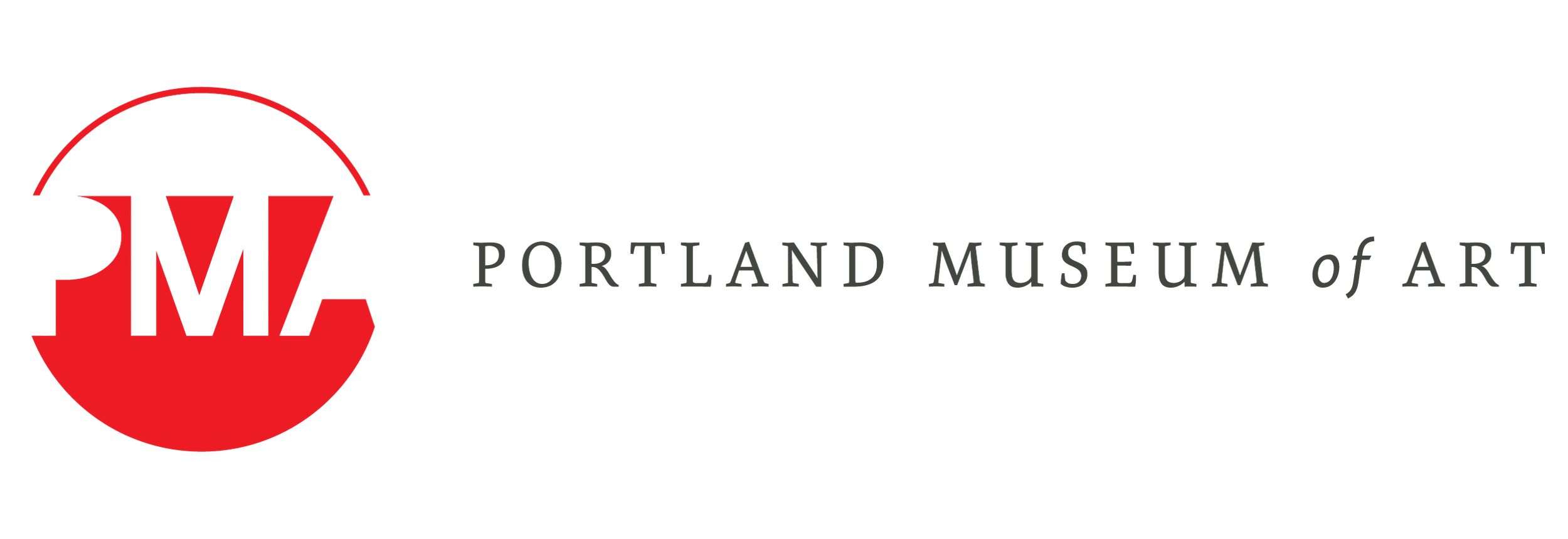The Leonard and Merle Nelson Social Justice Fund at the Portland Museum of Art honors artists who inform their work or their lives with themes of social justice. Through lectures, events, and the purchase of work, this fund brings these artists and their art to the PMA, creating awareness of the social justice issues of our date as conveyed through artistic expression.
Tune in for free on Wednesday, October 20 at 6 p.m. for a live digital conversation between artist William T. Williams and scholar James Trainor.
Missed it live? Watch it here.
William T. Williams in his Connecticut studio, 2018; Photographer Grant Delin; Courtesy of Michael Rosenfeld Gallery LLC, New York, NY
Known for his process-based approaches to abstract painting, William T. Williams (b. 1942, Cross Creek, North Carolina) has cultivated a vital career centered on individual and cultural histories with which he feels a particular affinity. Conceiving a unique synthesis of personal memory and social narrative, Williams forged his own language of referential abstraction, incorporating formal motifs lifted from his biography and bestowing his works with titles referencing specific places or concepts. Primary among these influences is jazz, which Williams recognizes as a site where memory, history, and Black American tradition converge. Quilting and African textiles have also been rich sources of inspiration for Williams, who finds the abstract motifs of both mediums replete with ethnographic significance. Aware of the tendency of nonobjective art to become detached from social experience, Williams has continually sought to engage his communities in dialogues about contemporary art; these efforts include a 40-year teaching career; initiating the artist-in-residence program at The Studio Museum in Harlem; and founding the artist group Smokehouse Associates, who completed several murals in Harlem between 1968 and 1970. Williams has consistently revised, adapted, and transformed his style over the years, imbuing his oeuvre with a sprawling thematic diversity structured by recurring formal concerns.
James Trainor is an author, educator and scholar who writes about art, architecture, urbanism, and the perception of nature and the built environment in contemporary culture. His columns, essays, editorials, interviews and reviews have appeared in numerous publications including Artforum, Art in America, Bomb, Cabinet, and Metropolis - as well as Frieze magazine, where he was the US Editor and a Senior Staff Writer from 2001-2010. He is also the author of multiple monographic essays and exhibition catalogs. He is contributing an in-depth essay on the work of William T. Williams and the Smokehouse Associates collective’s involvement in creating democratized urban spaces through abstract muralism in the late 1960s/early-1970s, in a forthcoming publication of the Studio Museum in Harlem appearing in 2022. He is also the author of a forthcoming book entitled Steal This Playground: New York City and the Radical Playground Movement, 1960–1978 about revolutionary urban play experiments and the fight for equitable public space in New York in the 1960s and 1970s, to be published by Princeton Architectural Press in 2022. James was born and raised in New York City, but has been a happy resident of Portland, Maine with his wife and two kids since 2018.
Images (left to right): William T. Williams (b.1942), Harlem Hearts (111 1/2 Series), 1999, acrylic on canvas, 57 x 36 inches / 144.8 x 91.4 cm, signed; © William T. Williams; Courtesy of Michael Rosenfeld Gallery LLC, New York, NY; William T. Williams (b.1942), Cape Split (Shimmer Series), 1972-73, acrylic on canvas, 84 x 60 inches / 213.4 x 152.4 cm, signed; © William T. Williams; Courtesy of Michael Rosenfeld Gallery LLC, New York, NY; William T. Williams (b.1942), Sunday Suit, 2018, acrylic on canvas, 28 x 20 1/4 inches / 71.1 x 51.4 cm, signed; © William T. Williams; Courtesy of Michael Rosenfeld Gallery LLC, New York, NY; William T. Williams (b.1942), Portland (Roller Series), 1979, acrylic on canvas, 60 x 24 1/4 inches / 152.4 x 61.6 cm; © William T. Williams; Courtesy of Michael Rosenfeld Gallery LLC, New York, NY






